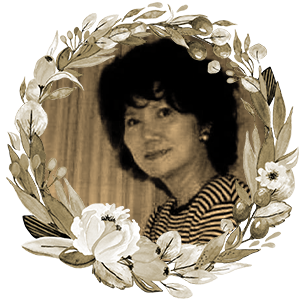
Poet, Visual Artist
February 19, 1938 – February 21, 2021
Grace Hsieh-Hsing Lee, also known as Grace Lee, was a Filipino visual artist and poet writing primarily in Mandarin.
Born in February 19, 1938 in Shanghai, China, she later migrated to Taiwan with her family, where she graduated from Taipei Girls’ High School in 1955. She later attended the Taiwan National College of Fine Arts, majoring in dramatic arts and graduating in 1956.
She became a flight attendant, a newscaster, and even an actress in Taipei, but later migrated to the Philippines, and was long considered one of the premier poets of the Chinese-Filipino community.
Her books include Changing (a translation of Liv Ullman’s autobiography in 1980), Essays (2007), and the poetry collections The Persian Cat (1990), To the Flowers (1990, with English translation by John Shih), Meditation in Stone Forest (2001), and Halo-Halo (2015, with English translation by John Shih and Rita Tan, with Filipino translation by Joaquin Sy and Isagani Cruz).
Her poems are widely anthologized, including in Discovering New Horizon: Anthology of Chinese Filipino Literature in English (1989) and Poems and Stories for College Students (1995). She also recorded a CD, Mandarin Poetry Reading, in 1999.
Her poems won citations at Taiwan’s Selected Poems of the Year in 1985, 1986, and 1989. She also won the 1987 Short Verse Contest of Taiwan’s United Daily News, and the 1994 Superiority Award from The Epoch.
She was once the Philippine representative to the International Writing Program at the University of Iowa. Grace also served as board member of the Philippine-Chinese Literary Arts Association and the Asia-Chinese Writers Association [Manila], as well as the Thousand-Islands Poetry Society [Manila], Wanxiang Poetry Society [Manila], and Epoch Poetry Society [Taipei].
In 2013, the Unyon ng mga Manunulat sa Pilipinas awarded her the Gawad Pambansang Alagad ni Balagtas for poetry in Chinese.
She served as judge of the prestigious Maningning Miclat Poetry Competition Chinese category many times.
Among the themes she explored in her poetry was the experience of being an ethnic Chinese living in the Philippines. She ended “Ongpin Street,” one of her most acclaimed poems, with the lines: “Whenever I think of China / to Ongpin my thoughts go. / Ongpin Street is in Chinatown. // Chinatown is not in China, / Chinatown is not China.”
She last contributed her poetry for Mga Tula sa Libong Pulo, a bilingual (Chinese and Filipino) anthology of nine major Filipino poets in Chinese, with Filipino translations by Joaquin Sy.
Upon learning of her demise, fellow Chinese poet Jameson Ong, posted this on social media: naway mabuhay nang walang hanggan si Grace Hsieh-Hsing sa kaniyang mga tula.
Dr. John Iremil Teodoro of De La Salle University expressed his fondness for the poetry of Grace Hsieh-Hsing Lee. He wrote about her poem La Generala on his blog: Sa huling saknong, ito ang sabi niya kay Diego: “Mahal kong Diego, / sapat na ang lahat nang ito, / hayaang kalimutan nila ang digmaan, / kalimutan ang patayan at kalupitan. / Hayaang humanga sila sa akin, / gaya nang paghanga sa isang likhang-sining. / Hayaang habampanahong tamasahin nila / ang kalayaan, ang pagkakapantay-pantay, / ang pananaig ng kagustuhan ng taumbayan. / Hayaang maghari sa kanilang kalooban / ang kagandahan at ang pagmamahalan. / Hayaan silang maging maligaya, gaya natin noon, / sakay ng kabayo, magkasamang paroo’t parito, / sa maliligayang mga araw natin sa Vigan…”
Sayang at hindi ako nagkaroon ng pagkakataong tanungin si Hsieh-Hsing kung bakit niya naisulat ang tulang ito. Ito ang tipo ng tula na kung hindi mo alam kung sino ang sumulat at salin lamang pala ito mula sa Mandarin ay hindi mo iisiping isang Tsinoy ang sumulat nito. Lagi kong sinasabi sa aking mga estudyante na ang tulang ito ay patunay na ang mga Tsinoy ay Filipino talaga, dahil kagaya ni Hsieh-Hsing, naiimadyin din nila na bahagi sila ng pamayanang Filipino kung susundan natin ang sinasabi ni Benedict Anderson na ang bansa ay isang “imagined community.” May iba pang tula hinggil sa kasaysayan ng bansa si Hsieh-Hsing tulad ng “Manila 1984,” “Maria Clara,” “Tandang Sora,” at “Isang Liham ni Lapu-Lapu kay Magellan.”
0 Comments